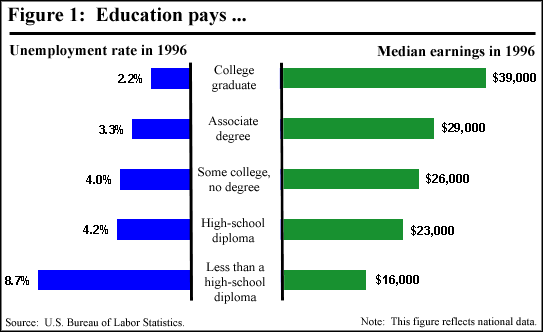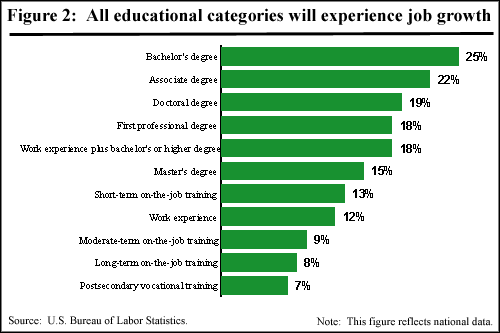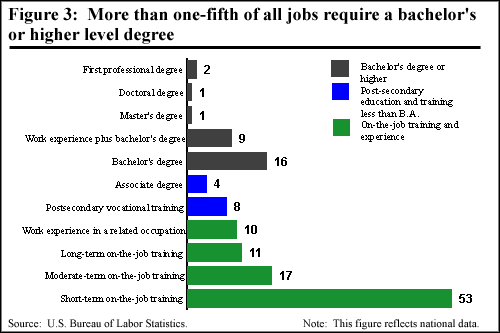While going through the 13 years of public education (K-12), one can sometimes wonder is it all worth it? Wouldn’t my time be spent more productively somewhere else? You can find peace of mind that what you're going through now will probably pay off in the future.
Recent studies by the U.S. Bureau of Labor Statistics, using 1996 annual data, show that education does pay, literally. As Figure 1 shows, median earnings in 1996 for high school graduates was $7,000 more than for those with less than a high school diploma.

Even more dramatic is the $23,000 difference between college graduates and those with less than a high school diploma. Figure 1 also shows that education also helps in just being able to land a job. The unemployment rate for those with less than a high school diploma was
8.7 percent, by far greater than any of the other categories. Education shows an employer that you have some basic skills and that you are trainable.
No matter what level of education you aspire to, you can find some comfort that there is going to be some level of job growth. Aspiring to a Bachelor’s degree level or higher would be the best option though (see Figure 2).

Five of the top six educational categories that will experience job growth require a bachelor’s or higher level degree. In addition, 29 percent of all jobs in 1996 required a bachelor’s or higher level degree (see Figure 3).

With the percent changes that are predicted in Figure 2 the number of jobs requiring a bachelor’s or higher level degree will only rise in the future.
The main thing that increased education provides you is more options. If you have a Bachelor’s degree in Engineering and you want to work as an Engineer or a Cashier, you can do either. If you don’t even have a high school diploma, you might not even get hired as a cashier. The facts show that a good education pays, so do your best in school and you will be able to do whatever you want when your schooling is done.